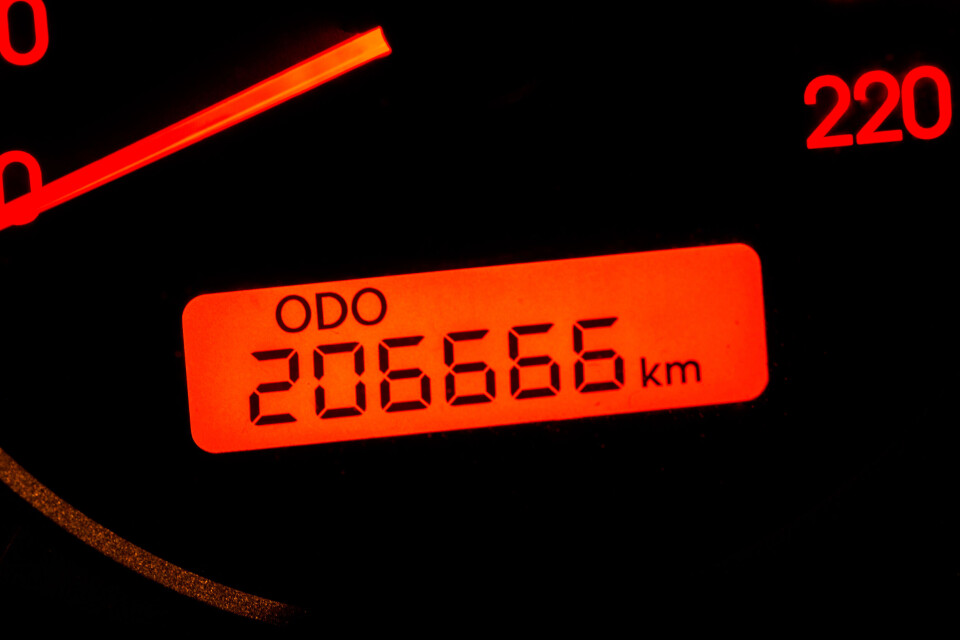-
How to check whether you have been issued a speeding fine in France
Fines can be sent anytime after an incident
-
Which French motorway toll subscription offers the best deal?
The ‘best’ packages vary depending on how often you use the road, the type of vehicle, and your destination
-
Faulty airbags: Mass recall in France includes more Toyota and Mercedes models
More than 2 million vehicles are still affected, with more cars now added to the list
How to avoid second-hand car sale kilometrage scams in France
We summarise six ways to avoid being caught out when buying a used car; plus, the top 20 most-tampered with second-hand vehicle models

Drivers are warned to be alert to scams in France in which the kilometrage on second-hand cars is falsified to give the impression that the car has travelled fewer kilometres than it actually has.
While there is no way to accurately identify the real kilometrage of a car after it has been tampered with, here are some tips that buyers can follow in a bid to avoid being scammed. They were gathered by French media La Depeche - we summarise.
1. Ask to see bills
Seeing the vehicle’s past bills can help you check if the kilometres shown match the history of the vehicle. If the seller cannot show you these documents or is very reluctant to do so, this is usually a bad sign.
2. Ask to see the history of the vehicle
When buying a second-hand car, always check the history of the vehicle. A government platform called HistoVec enables you to request this information (although it is entered voluntarily by car-owners so not all cars are there), which can include any dates of previous check-ups, with the corresponding kilometrage.
In this way, it is easy to see if a vehicle has a ‘normal’ progression in the kilometres done, and also if the numbers correspond to that given by the vendor.
Some criminals can falsify the vehicle’s history, but this is much more difficult and would indicate a much larger and more organised scam.
You can also see the car’s carte grise history, and get tips for selling or buying a second-hand car, on the government’s website l’Agence Nationale des Titres Sécurisés.
3. Request a private database check
Some platforms such as carVertical and Autorigin enable you to get extra details on a vehicle’s history (for a fee) without going through the vendor. These details can help you check any possible dangers about the vehicle, and anything to watch out for.
4. Take it to an official garage
For some recent vehicles, the car’s computer can reveal certain aspects of the car’s history, including any anomalies when it comes to the kilometrage.
If you can, taking the vehicle to its original manufacturer for a check-up – for example, taking a BMW X5 to an official BMW garage, or asking an official engineer to come to you – can help reveal any scams or tampering.
5. Check physical signs
Taking a close look at physical signs of tampering can also reveal something amiss. This might be anything from the fabric or leather of the seats having been cut or altered or even signs that the pedals of the car have been worn down more than you might expect for a low kilometre count.
6. Check under the bonnet
Check under the bonnet for signs of tampering. For example, some cars have a sticker under the bonnet indicating when their next oil change is due.
This can give a clear reading if something is amiss, for example, if the oil has been changed at 150,000km, but the kilometre counter shows 100,000km only, then you can instantly tell it has been altered.
What are the most commonly tampered with models?
A CarVertical study of 700,000 historical vehicle reports between November 2020 and November 2021 found the following second-hand models to be at the highest risk of kilometrage tampering:
BMW M5 (33.6% falsified)
BMW 7 series (33.4%)
Subaru Outback (31.8%)
BMW 6 series (31.7%)
Audi A8 (31.4%)
VW Phaeton (31%)
BMW X5 (26.7%)
BMW 5 series (26%)
Ford Mustang (25.9%)
Audi A7 (25.8%)
BMW X6 (24.4%)
BMW X4 (24.4%)
VW Touareg (23.3%)
Volvo V70 (22.6%)
BMW 3 series (22.3%)
Porsche Panamera (22.3%)
Audi A6 (22.2%)
Chrysler Town & Country (21.4%)
VW CC (21.2%)
VW Sharan (19.6%)
Related articles
Why now is the best time to sell a second-hand car in France
"€50 bill" car theft scam warning
French couple warns of ‘British family holiday’ scam
























